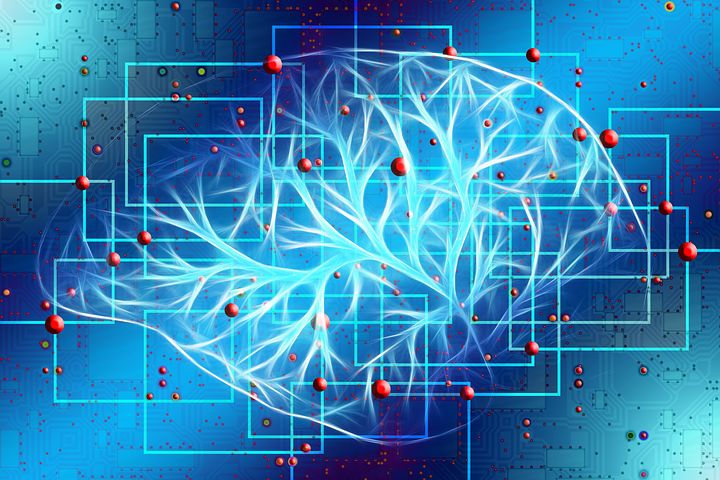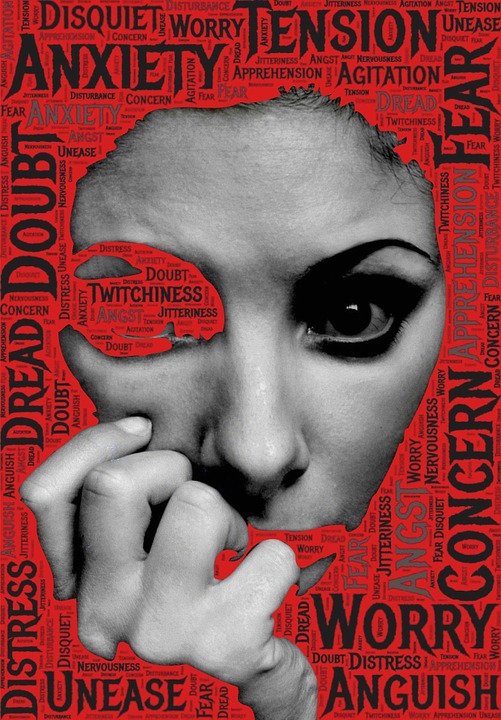What Is a Personality Disorder?

Personality disorders, or character disorders, are mental health conditions that are pervasive and enduring; and they affect all aspects of a person’s life. While a person cannot be officially diagnosed with a personality disorder until adulthood, characteristics usually appear during adolescence.
There are 10 personality disorders outlined in the Diagnostic and Statistical Manual of Mental Disorders (DSM), which is the manual used by mental health practitioners to diagnose mental health conditions. Among the 10 disorders, they all have four characteristics in common:
1) Altered thinking patterns,
2) Problematic affective responses,
3) Poor modulation of impulse control, and
4) Problematic interpersonal relationships
Research shows that personality disorders are caused by various factors, including biological and environmental -the whole nature vs. nurture argument. It turns out the likelihood of developing a personality disorder is influenced by both.
The most common personality disorders in the United States include Obsessive-compulsive, Narcissistic, and Borderline Personality Disorders, in that order.
The DSM-5 (5th edition) breaks personality disorders into three categories or “Clusters”. The personality disorders within each Cluster have shared characteristics. We review these clusters and give a brief description of each personality disorder below.
Types of Personality Disorders
Cluster “A” Personality Disorders
Cluster A personality disorders are characterized by odd or eccentric thinking and behaviors. This category includes Paranoid, Schizoid, and Schizotypal Personality Disorders.
Paranoid Personality Disorder
As the moniker suggests, those with Paranoid Personality Disorder approach the world with a suspicious eye. They may misinterpret non-threatening situations as dangerous; and harmless comments by others can be viewed as attacks. They are hypersensitive to perceived insults, becoming easily angered when they believe they have been slighted. When feeling slighted, they are experts at holding grudges.
Individuals with Paranoid Personality Disorder tend to be suspicious of other people’s motives, including holding irrational beliefs that others are out to intentionally harm them. Because of this pervasive mistrust of others, individuals with Paranoid Personality Disorder are reluctant to confide in others, for fear the information could be used against them at a future date.
This general mistrust of others can lead to accusation of infidelity by their partners, even when there is no evidence their partner is cheating.

Schizoid Personality Disorder
Schizoid individuals are seen by others as indifferent or cold; and they have trouble reading social cues. By social cues, I mean indirect forms of communication like facial expressions, body language, and tone of voice. Social cues guide us in our interpersonal relationships and most of us take them for granted.
For people with Schizoid Personality Disorder, interpersonal relationships are of secondary importance, as they prefer to participate in solitary activities. Their range of emotional expression is limited. In other words, they show less dramatic emotional response to situations and events. For example, an individual with this disorder may seem aloof and unaffected by a family member’s death.
In addition, they have trouble experiencing pleasure through activities. This includes a lack of sexual desire and interest in physically intimate relationships. To the outside observer, schizoid individuals appear to lack motivation and goals.
For a personal account of Schizoid Personality Disorder, check out SCHIZOID: The Native Immigrant, written by John Robert Chaney.
Schizotypal Personality Disorder
Schizotypal Personality Disorder is characterized by eccentric or odd attire, beliefs, thinking, behavior or speech. Paranoia is a common feature. These individuals may experience unusual sensory phenomena, like hearing their name whispered. They show a severe reduction in emotional expression, also known as a “flat affect“; or inappropriate emotional responses.
Individuals with Schizotypal Personality Disorder tend to experience social anxiety and discomfort with intimate relationships. They may respond to others in an indifferent, inappropriate, or suspicious manner. Magical thinking is common, as are “ideas of reference”. Ideas of reference are false beliefs that a coincidental happening is directly related to you.
Cluster “B” Personality Disorders
Cluster B personality disorders are marked by overly emotional, impulsive, or dramatic thinking and behavior. This cluster includes Antisocial, Borderline, Histrionic and Narcissistic personality disorders.
Antisocial Personality Disorder
Antisocial Personality Disorder is one marked by a callous disregard for the rights and feelings of others. These individuals have a low frustration tolerance, and struggle to manage stressful situations. Because they lack concern for others’ well-being, they will repeatedly violate the rights of others. This can lead to frequent involvement with law enforcement.
Many individuals with Antisocial Personality Disorder are clever enough to evade getting caught by the law, but that doesn’t change the fact they demonstrate persistent dishonesty by lying, stealing, and conning others. Hostility and aggressive behavior, which sometimes leads to violence, are commonly seen in this personality disorder.
Those with Antisocial Personality act recklessly and have a high level of impulsivity. These individuals fail to follow through on responsibilities and duties; and they feel little to no remorse for their immoral or unlawful behavior, even when it hurts others.

Borderline Personality Disorder
Borderline Personality Disorder (BPD) is the third most common personality disorder found in the United States. Some common signs of BPD are tumultuous relationships, significant mood instability, and (what appears to be) manipulative behavior. It’s important to point out that the behavior feels manipulative to others. For the person with BPD, it’s an attempt to manage overwhelming emotions.
Those with BPD tend to engage in impulsive and reckless behavior. They may abuse substances, shop compulsively, or binge eat, for example. At the core, they have an unstable self-image as well as unstable and intense relationships with others. Their relationships are negatively affected by intense episodes of anger and hostility.
Fears of real or perceived abandonment haunt the individual with BPD, and they will take extreme measures to avoid feeling abandoned. Their moods shift suddenly, especially if they fear abandonment is imminent. They are reactive in relationships, and they struggle to cope with chronic feelings of emptiness.
It’s common for people with BPD to have suicidal thoughts or behaviors. Sometimes they engage in “parasuicidal behaviors“, or suicidal gestures, that aren’t likely to result in death. Cutting oneself superficially is an example of parasuicidal behavior. They may use threats of self-harm when experiencing extreme levels of stress. During moments of significant distress, a person with BPD may dissociate, feeling as though their world is surreal.
If you believe you or someone you care about has borderline traits, see our quiz, Borderline Personality Disorder Quiz: Do You Have It?
There is a lot written on Borderline Personality Disorder (BPD), perhaps because it’s fairly prevalent. It also creates a lot of tumult in personal relationships. There are great resources, both for those who suffer from BPD and for their loved ones.
The Dialectical Behavior Therapy Skills Workbook and The Borderline Personality Disorder Workbook are two excellent resources for people with BPD. They focus on managing the intense emotions and mood swings that are associated with the condition. Both are based on Dialectical Behavioral Therapy (DBT), which research has shown to be effective in treating BPD.
For those who care about someone with Borderline Personality Disorder, there are a variety of well-written options. Stop Walking on Eggshells is geared toward those who’s lives are affected by someone who has BPD. It explains Borderline Personality Disorder in more detail than we can here, and offers guidance on how to set limits, take care of yourself, and minimize conflict.
Histrionic Personality Disorder
Those with Histrionic Personality Disorder exhibit attention-seeking behavior. They are overly-dramatic or provocative to gain the attention of others. Their emotional expressions may seem overly extreme to the situation. For this reason, they come across as superficial. They are the ones laughing loudest at the party and crying loudest at the funeral.
In addition to presenting dramatically, they are easily influenced and swayed by the opinions of others. There is an excessive focus and concern about physical appearance, and they often believe relationships are more intimate than they actually are. A histrionic friend of 4 weeks may prematurely declare you are “besties”.
FBI special agent and behavioral specialist Joe Navarro reviews this condition in more detail in his booklet How to Spot a Histrionic Personality.
Narcissistic Personality Disorder
Those with Narcissistic Personality Disorder require constant admiration and praise. They tend to be haughty and arrogant, often bragging about their achievements and talents. They usually expect special favors, because they believe they are more important than others, after all. This includes fantasies of having power over others.

This group tends to take advantage of other people, as they have a low ability to empathize. They are frequently envious of what others possess, or they believe that others are envious of them. They have top-notch skills in manipulating others and can cause a lot of damage to those who fall into a relationship with them.
Becoming the Narcissist’s Nightmare, by Shahida Arabi, offers guidance on how to spot a narcissist, how to detach from a narcissist’s manipulations, and how to recover from a relationship with a narcissist.
Cluster “C” Personality Disorders
Cluster C personality disorders have characteristics of anxiety and fearfulness. They include Avoidant, Dependent, and Obsessive-compulsive Personality Disorders.
Avoidant Personality Disorder
People with Avoidant Personality Disorder suffer from extreme shyness and introversion. They have a heightened fear of disapproval or being humiliated in front of others. Because of this fear, they are overly sensitive to criticism and rejection.
In order to avoid feeling inadequate, they may steer clear from interpersonal relationships. This may extend even to work environments, which can affect their ability to hold down a job.
A person with Avoidant Personality Disorder feels inadequate at his or her core. They perceive themselves as inferior to others, and they are terrified of being exposed as not good enough.

Dependent Personality Disorder
Dependent Personality Disorder causes people to require frequent reassurance from others. They have extreme difficulty in making their own decisions – even small ones.
Because of their fear of disapproval, they will come across as agreeable, as they avoid disagreement with others. People with Dependent Personality Disorder lack the initiative to begin projects on their own because they lack confidence in their own abilities, and will rely on the support of others to get started.
Individuals with this personality disorder are more tolerant of being abused by others, so are easily preyed upon by those looking to take advantage. They will quickly seek a new relationship when one ends, and feel the need to be taken care of by others. They may come across as clingy and needy. The idea of being alone or having to fend for themselves can be paralyzing for someone with Dependent Personality Disorder.
The best self-help material available for those with Dependent Personality Disorder is on the subject of codependency. Codependency refers to depending on relationships to provide one’s sense of self.
“Codependents” have the need to constantly seek affirmation from others, which is destructive to their emotional well-being. One book that is highly recommended by therapists is Melanie Beattie’s Codependent No More: How to Stop Controlling Others and Start Caring for Yourself. A supplemental workbook is available.
Obsessive-compulsive Personality Disorder
Obsessive-compulsive Personality Disorder is marked by a rigidity in thinking and behaving. Preoccupied with rules and organization, they can come across as inflexible and stubborn. Their perfectionism can drain the joy right out of their own lives.
Those with Obsessive-compulsive Personality Disorder have trouble letting loose and having fun. They are known to dedicate excessive time to work to the exclusion of leisure time. They are the incarnation of “all work and no play”.
Others may see these individuals as cheap due to their extreme frugality. Individuals with this condition, having trouble giving up worthless items, may accumulate a lot of junk and become hoarders like the ones we see on popular reality shows.
Their level of perfectionism may interfere with completing tasks, as well as delegating responsibilities to others because they want things to be “just right”. These tendencies come across as controlling.
Too Perfect: When Being in Control Gets Out of Control is based on the clinical experience of Dr. Allan Mallinger. Mallinger provides insights into the obsessive-compulsive personality type, explaining why a perfectionistic lifestyle drains joy. He includes self-tests, case studies, and strategies to overcome some of the stubborn tendencies that are associated with this personality type.
Causes of Personality Disorders
What causes a person to develop a personality disorder? The reason is likely due to a mix of factors- including biological and environmental. Environmental factors may include things like childhood abuse, neglect, or exposure to violence.
Neurological and genetic influences play a role as well. For example, a study showed that subjects with Borderline Personality Disorder showed abnormal levels of an amino acid in the pre-frontal cortex. It also mentions the presence of a gene that is associated with lower serotonin levels.

Science has not yet solved the mystery of why one person will develop a personality disorder versus another, but research is ongoing.
Treatment
Treatment of personality disorders is a challenge. The best indicator of someone improving is their motivation to change. Sadly, this motivation is often lacking because generally people with personality disorders have little insight into their conditions. Additionally, the characteristics of personality disorders are ego-syntonic. That’s to say, the experience of living with a personality disorder feels familiar to the person.
That’s not to say there isn’t hope if you realize you may have a personality disorder. An analysis of studies suggests if a person is truly motivated to improve their life and relationships with others, working with a therapist can be effective. Also, if there are co-existing conditions like anxiety or depression, medication can be used to alleviate those symptoms.
For borderline personality disorder, which is relatively common, evidence supports the effectiveness of Dialectical Behavioral Therapy (DBT). DBT teaches people to better control their mood swings and intense emotional through talk therapy and skills training. While personality disorders are stubborn to treat, with dedication to recovery, there is help available.
TheMentalHealthBlog.com is a participant in the Amazon Services LLC Associates Program, an affiliate advertising program. TheMentalHealthBlog.com earns fees from products sold through qualifying purchases by linking to Amazon.com. Amazon offers a commission on products sold through their affiliate links.



